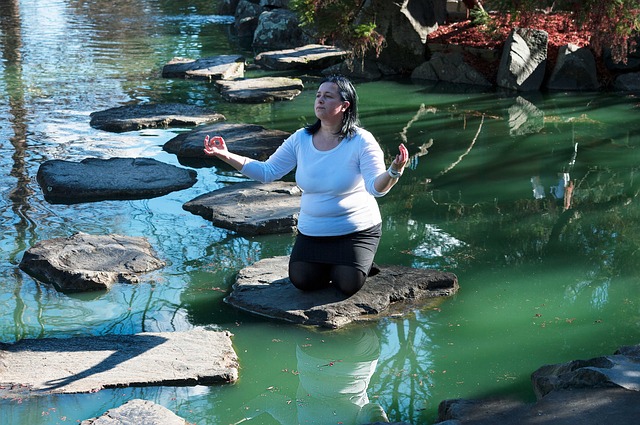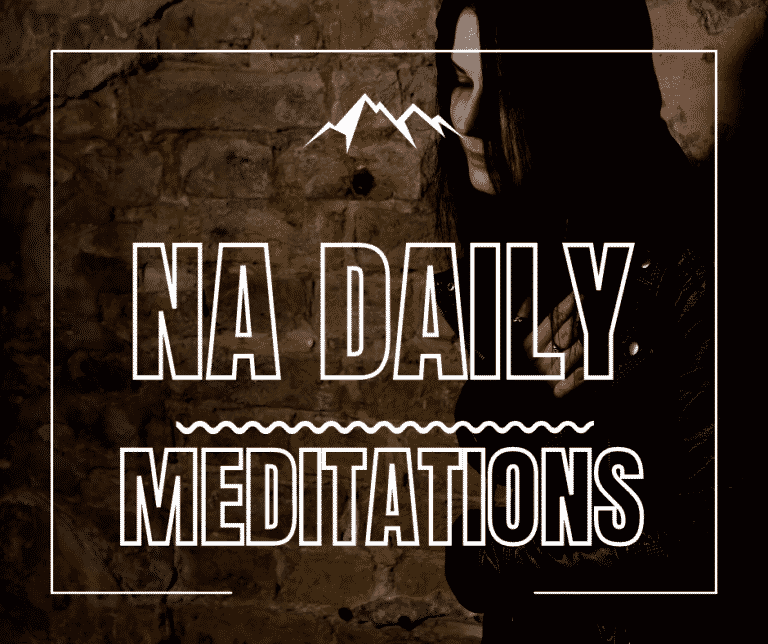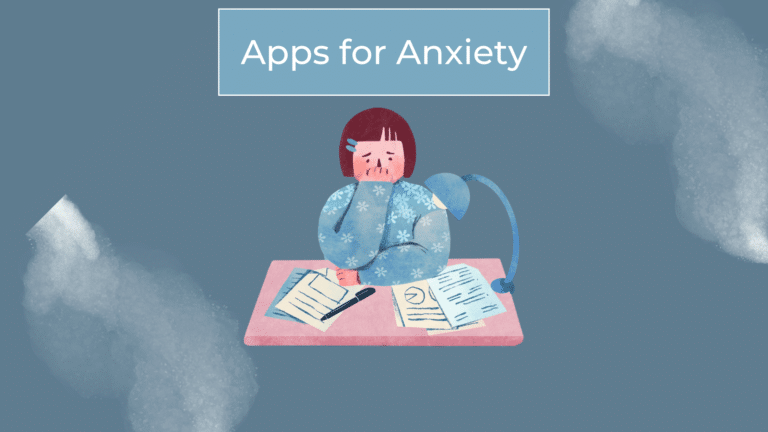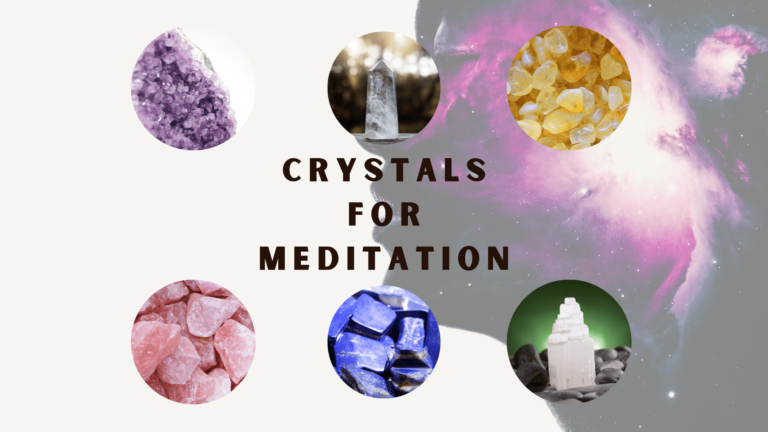Five Ways You Can Use This MEDITATION Technique When the World Around You is Falling Apart
Published on August 7, 2021 – Last Updated on March 13, 2024
The world is changing. It’s getting harder and harder to stay sane in an era where we all have a personal device that lets us know what’s happening at any given moment. We are constantly bombarded with information, news, updates, and the result can be overwhelming.
It’s no wonder that many people start feeling anxious or depressed these days; it seems like you’re always on edge because of everything going on around you! But there IS something you can do about it-something that will help your mind find some space from all the chaos out there: meditation.

Meditation doesn’t mean sitting still and doing nothing; instead, it means clearing away thoughts and focusing on one thing for a while. And while many people assume meditation is only for monks or priests, the benefits of practicing regularly are precious to everyone. It might just be what brings you back to your center and helps you find a sense of peace.
The following points cover how you can start enjoying the powerful benefits of meditation:
1) Set at Least Five Minutes Aside for Meditation
You don’t need to set aside hours every day or even every week to start reaping the benefits of meditation. But just setting five minutes aside every other day can make a big difference! If you do this consistently, you’ll find that even when stressful situations strike-like during a covid pandemic-your mind will be able to stay focused on one thing: your mantra.
2) Use a Mantra that Will Be Easy to Remember and Repeat
It can be hard to find your way back into the present moment if you struggle with meditation. The best way to get past this roadblock is by using an anchor that allows you to remember to focus on the present. Mantra meditation is an excellent method to help you find your anchor; instead of concentrating on nothing but your breath, you can repeat a single word or phrase (that might be tied to an emotion). Then, gently guide your mind back when you notice your mind straying from the mantra. It’s this gentle and persistent approach that will let you find and stay focused on your anchor.
3) Don’t Expect to Find Your Mantra OverNight
It can be disheartening to practice a new meditation technique for days but have little success with actually meditating on the mantra. However, this is normal; everyone would be doing it if it were easy to achieve peace of mind! Instead, you have to find ways of establishing a routine that will allow your mind and body to focus. Maybe you begin by practicing for five minutes at night just before bed; perhaps you start with ten minutes on the weekend. Whatever allows you to set aside time in your day is perfect! Just make sure to stick with it, even when you don’t see results, and you will eventually find the peace you’re looking for. 4) Find a
4) Quiet place
Finding time to meditate is essential, but so is finding a free place from distractions. If it helps, you can use meditation as an opportunity to get away-maybe by going on a short walk outside your home or visiting a local park. If you enjoy nature, this can be especially helpful!
5) Acknowledge Your Accomplishments
If it helps, keep a journal of your progress with meditation; write down how well you did each day, and include any instances where you were particularly successful. Many people struggle with motivation during stressful times, but the benefits of doing so are clear: meditation can help you relax even when there’s chaos going on around you.
Looking for ways to invoke positive change in your life? Check out our MindTastik Meditation app.

What is meditation and how can it help me during a crisis?
Meditation is a mental exercise that has been proven to help practitioners relax, manage stress, improve concentration, and help with pain. Meditators focus their minds on clearing worries and streamlining their thoughts, so they can concentrate on what’s important.
So now you know about what meditation is and why it’s so important to learn the basics of reflection during a crisis. But how can you practice meditation in the real world where things are falling apart around you?
- Meditation for when you have a headache or body pain
Meditation is an effective natural painkiller that eliminates headaches, body pains, and stress! Learn to meditate anywhere (the best place to start is on your bed since it’s comfortable) by closing your eyes and simply focusing on your breathing. Since you’re focusing on something constantly, meditation helps relieve body pain! If the pain keeps coming back, try meditating for more extended periods (even up to an hour).
2. Meditation is a great way to keep calm in any situation
You don’t need to be isolated from meditating. The best place to practice meditation is going through your daily activities, so it’s perfect for keeping calm in stressful situations!
By simply focusing on your breathing and letting go of worries, you’ll be able to stay focused on what’s essential (like getting out of a dangerous situation).
3. Meditation can help you cope with family members or friends who are going through a rough time
A great way to help your loved ones is by assisting them to meditate-since meditation requires total concentration, it allows people to “unplug” from the world and focus on what’s important. When a person meditates, they learn how to let go of worries and concentrate on the present-so when you’re with your family or friends, help them focus on the situation at hand, and don’t let concerns distract them.
4. Meditation is a great way to stay focused during simulations
You’ve probably been told that it’s essential for you to be in touch with yourself; if something were to happen, what about when you have to do a simulation or drill?
Well, meditation is the perfect way to stay focused and alert by focusing on your breathing (aided by the instructor). You’ll be able to concentrate on what’s important without getting distracted. By meditating during simulations, you’ll be better prepared for that situation *IF* it happens in real life.
5. Meditation helps you stay focused during a crisis-so what can I do to prepare?
If you’d like to be prepared for a crisis and help yourself and your family, start meditating! It doesn’t matter if it’s just for 5 minutes each day or even 30 minutes each week; the more you meditate, the better prepared you’ll be. Also, by meditating before a crisis happens, you’ll know what to do and how to stay focused-so. So keep yourself safe by starting your meditation practice today!
#1 MEDITATION TECHNIQUE: Close your eyes and focus on counting up from 1 to 10 while breathing in for 4 seconds, then breathing out for 4 seconds. Make sure you focus on counting and don’t let other thoughts distract you (which might make you lose count or not be able to breathe correctly).
#2 MEDITATION TECHNIQUE: Now try focusing on something else-like, a candle or an object in your room. Close your eyes and take deep breaths, focusing on the thing. After some time, you’ll find that your mind goes blank, and you’re able to stay focused on the object for an extended time (sometimes even hours!)
#3 MEDITATION TECHNIQUE: Now try focusing on something else-like, a candle or an object in your room. Close your eyes and take deep breaths, focusing on the thing. After some time, you’ll find that your mind goes blank, and you’re able to stay focused on the object for an extended period (sometimes even hours!)
#4 MEDITATION TECHNIQUE: Do this exercise while standing or sitting. Take deep breaths as you focus on counting from 1 to 10. (Make sure to focus on your breathing, not the counting!) As you get closer to 10, your mind will wander-but don’t worry! Say “thinking” and start over with one again. The key is to stay focused on one thing for an extended time; it’s not about how fast you can count up from 1 to 10!
Benefits of meditation
Everyone has their own goals and objectives in life. The benefits of meditation can help you reach your goals by, for instance, allowing you to:
– Be more mindful
– Calm your thoughts and emotions
– Sleep better
– Improve your concentration
– Become less anxious and stressed
– Overcome fears
– Reduce your blood pressure
– Gain a sense of clarity and purpose in life
If you think about it, most people spend their days thinking about how to solve problems with the things they’ve done in the past or what they hope will happen in the future. In reality, only right now matters and is the only time you can do anything about your problems. So even if you’re stressing out over an issue that happened yesterday or last week, trying to learn how to meditate can help bring clarity and peace of mind in these situations.
How to meditate
Meditation, in essence, is the act of staying in a calm state. It’s a powerful tool that can help your mind cope with the stress and anxiety that comes from everyday life. Most people believe meditation should take 10 minutes a day to be effective, but you might find that you need more time depending on what you’re trying to accomplish.
The best way to meditate is by practicing five minutes every day. This will give you enough time to learn the basic techniques without feeling overwhelmed. It’s important not to skip days because if you make exceptions when you want to meditate, it can feel much more challenging and defeating when it’s time for your daily session. As hard as it may seem at first, try to do it every day. Just five minutes a day will make you feel better after the first week.
Meditation gives your mind time to decompress and unwind from whatever had been pressuring it previously. It’s like permitting yourself to take a break during the day that does not involve technology or going out with friends. Unlike sleeping, which you do in a lying-down position, meditation is best done by sitting up straight with your eyes closed.
Meditation doesn’t just happen within the five minutes you are specifically focused on it; it’s an overall process. It helps calm your mind so that when you’re not actively meditating, you feel the effect. Meditation does not work for everyone, but it’s worth a shot before deciding it isn’t for you.
#1-Know that meditation isn’t magic; it takes time and effort to learn the practice. Think of your first session as an entry point into the subject matter, and plan to spend one month focusing on daily mental exercises. By the end of a month, you should begin to see that your mind can focus and concentrate on daily tasks.
#2-If you’re having trouble sitting still during meditation sessions (or even if you can sit still but don’t know what else to do), yoga is an excellent way to learn how to meditate. Try a class or two, and you’ll be amazed at how much easier it is to sit in one place for five minutes with your eyes closed when you are used to having to move constantly during yoga sessions.
#3-Dodon’t start off trying to meditate for more than 10 minutes; this will overwhelm the mind. Remember that the point of meditating is to reduce overthinking and let the mind relax. That’s hard enough to accomplish in 10 minutes, so if you extend it even longer, you won’t be able to focus on calm thoughts during the session-you’ll be too busy thinking about when it will end! Instead, start small and add more time to your sessions as you get used to them.
Tips for beginners – what not to do when you’re just starting out with meditation
The first mistake beginners make feels like they need to get their brain “clear” for meditation to work.
Look into the different kinds of meditation that work best for you. Be mindful of the different types, and do your best to find which one is the most beneficial.
Your second mistake might be trying to meditate at a time when you’re not relaxed. For example, maybe your mind was racing, or perhaps you were about to go somewhere and took some time out for this practice. While it’s OK to take some time out from what you were doing to meditate, it’s not going to be as much of a success if you had done it before instead of after a long stressful day.
Lastly, your biggest mistake might just be trying too hard to do it. You need persistence, and you have to persevere if you want this practice to work for you, but don’t let that urge get left in the door when you come into the meditative state of mind. Don’t get so caught up in wanting “success” that you forget just to let it happen. Let go of all the things that seem essential, and then surrender yourself into a deeply relaxing state of mind.
Conclusion
There are many benefits of meditation, but many people don’t know how to meditate. In this post, we provide an overview of the basics and ways you can practice at home or on the go with just a few minutes each day! Let us know what your favorite technique is in the comments below. If you want help implementing these strategies into your own life, let’s chat about it so that our team can create a plan for success that works best for you.





